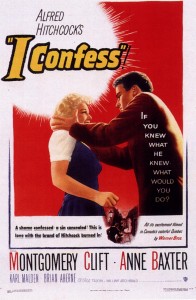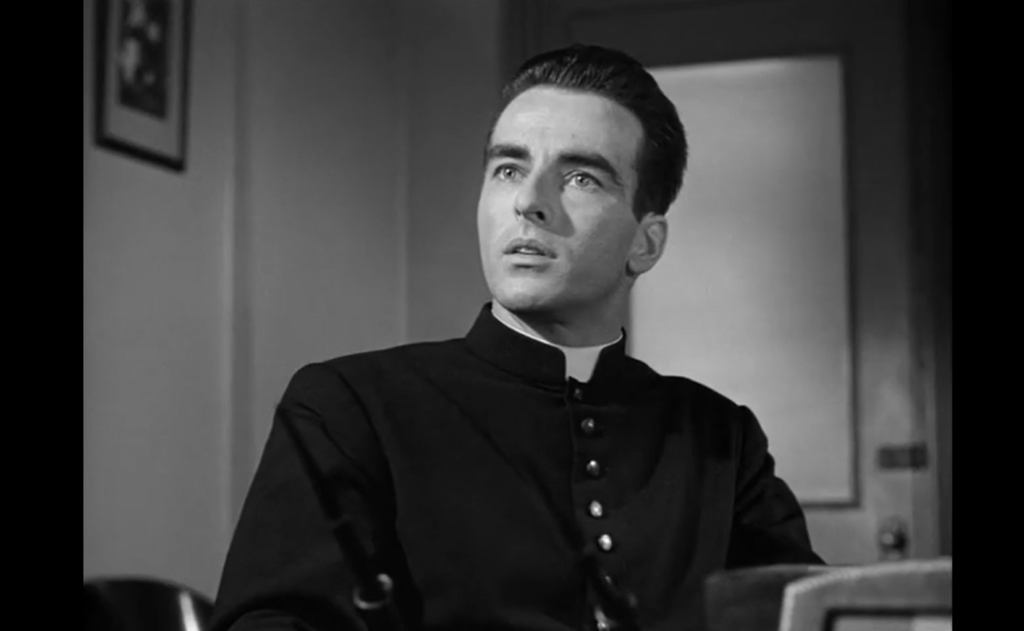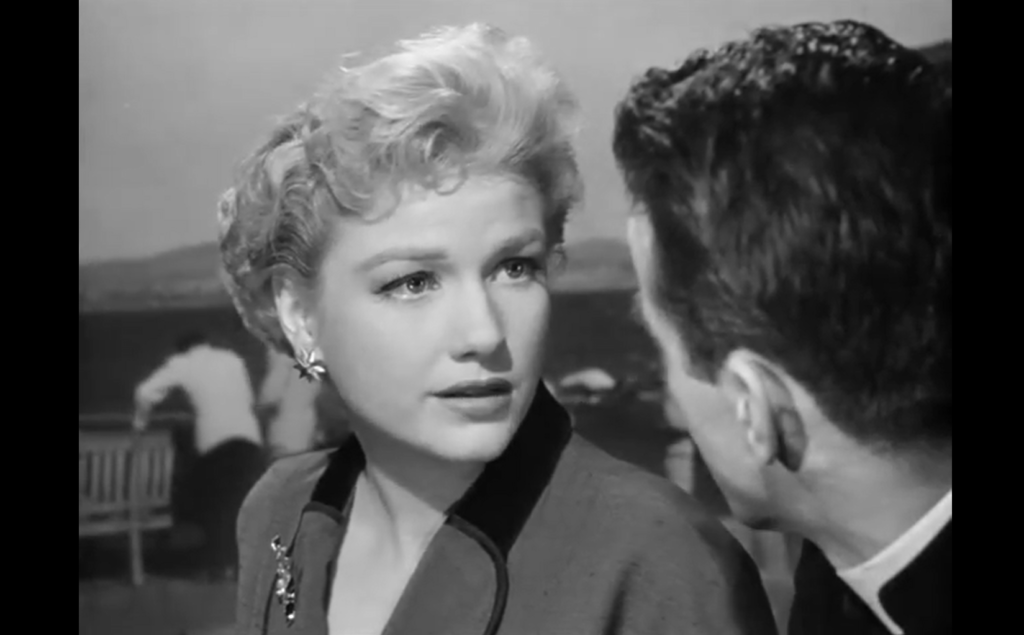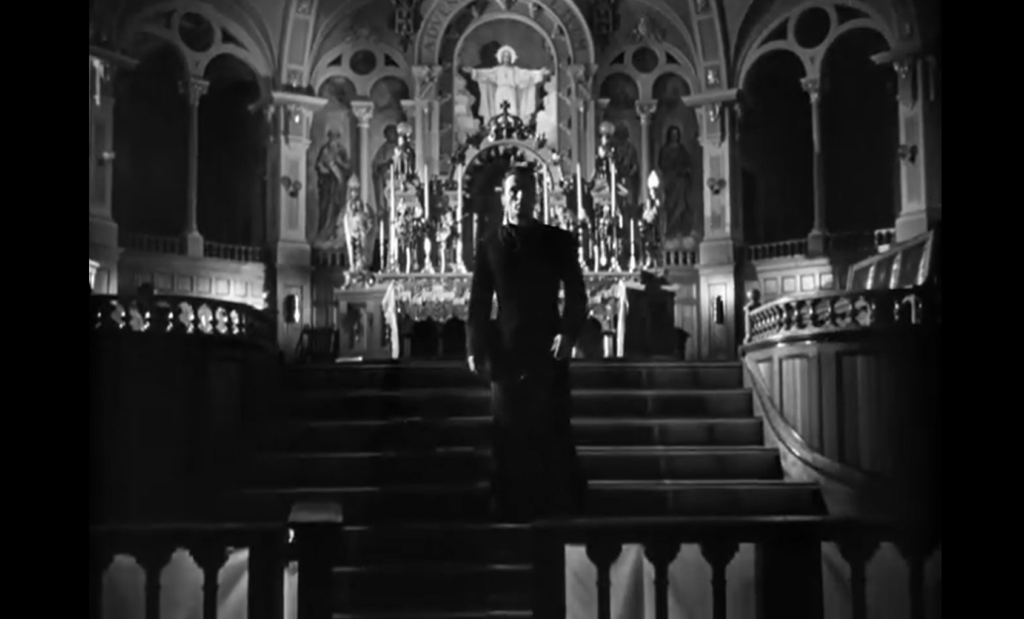|

Synopsis:
A priest (Montgomery Clift) hears the confession of a murderer (O.E. Hasse), but is unable to say anything about it to the prosecutor (Karl Malden) who questions him, and soon finds himself the prime suspect — especially when his friendship with a married woman (Anne Baxter) is revealed.
|
|
Genres, Themes, Actors, and Directors:
- Anne Baxter Films
- Brian Aherne Films
- Detectives and Private Eyes
- Falsely Accused
- Hitchcock Films
- Karl Malden Films
- Montgomery Clift Films
- Play Adaptations
- Priests and Ministers
Review:
Opinions vary wildly on this relentlessly somber, somewhat dated Hitchcock outing (based on a 1902 play by Paul Anthelme), with some finding it seriously flawed, and others (a smaller group, to be sure) ranking it among his finest films. An overtly religious movie in many ways, it deals with issues of ethics, conscience, and clerical duty (with thriller elements thrown in for good Hitchcockian measure); indeed, as noted by DVD Savant, it actually features thematic similarities to Bresson’s Diary of a Country Priest (1951). Many have complained that Clift’s performance is overly stoic — and it’s true that it’s difficult to really get to know his character, just as it may be to get to know any priest.

Baxter (whose story one can’t say too much about, at risk of giving away spoilers) ends up as the most “human” of the protagonists in the movie — the one we’re most meant to relate to — but she’s unfortunately not all that sympathetic.

Even more viewers have complained about the central conceit around which the storyline pivots: Clift’s refusal to give away even the slightest hint of what he’s heard in confession. Non-Catholics may have a hard time understanding this, and I’ll admit to feeling frustrated by it myself — but ultimately, Clift’s utter devotion to his character’s ethos pays off, such that the final shot truly gave me chills, and suddenly placed the entire film in a different light.
Redeeming Qualities and Moments:
- Robert Burks’ cinematography

- Dimitri Tiomkin’s score
Must See?
No, but it’s recommended for one-time viewing, and certainly a must for Hitchcock fans.
Links:
|




One thought on “I Confess (1953)”
Not a must.
I’ve seen this a few times and have never liked it. Simply because I don’t think the movie works. Having just seen it again, I’d say it’s for the last time.
Everyone involved – not least of all the terrific DP Robert Burks, who captured quite a few great Hitch flicks – tries valiantly to make the story…well, more compelling than it really is. What one might briefly think is a potent idea (breaking the ‘sanctity’ of confession) becomes both thin and stretched.
(While watching this time, I thought of ‘The Wrong Man’ – and how, in that film, Hitch also takes a single, potent idea…and makes it work. Rather well. Of course, one has to also thank the writers for that. The script for ‘I Confess’ isn’t nearly as good.)
I don’t have that much of a problem with Clift. I think he’s appropriately cautious and reflective. The only difficulty I have with his character comes early when, almost inexplicably – he lies! Which causes a lot of trouble. More to the point…as a priest, he’s supposed to protect the truth revealed in confession – but he’s free to lie at will?!
Baxter presents much more of a problem for me, with one of her more affected performances. As an actress, Baxter is usually more effective when she gets a lot of help from her director. Hitch has been kind of hands-off with her. Early in ‘All About Eve’, Baxter’s Eve relates personal history to Bette Davis and those with Davis in her dressing room backstage. In that movie, we appropriately sense Baxter’s pretense. She’s lying with just about every word. In ‘I Confess’, Baxter is given another long monologue about her character’s past. Only this time, it’s supposed to be the truth…and it still sounds phony.
Much like her performance, I just don’t buy the movie in general. Not that I’m Catholic now, but I was raised Catholic. So I can sense the film’s pure intention of putting a very real (religious) reality to the test. (Although the ritual of confession has all to do with being Catholic and nothing to do with the Bible…and that’s another story.) But the film feels as forced as everyone’s intense effort to get it on-screen. At 95 minutes, it feels verrrrry long.